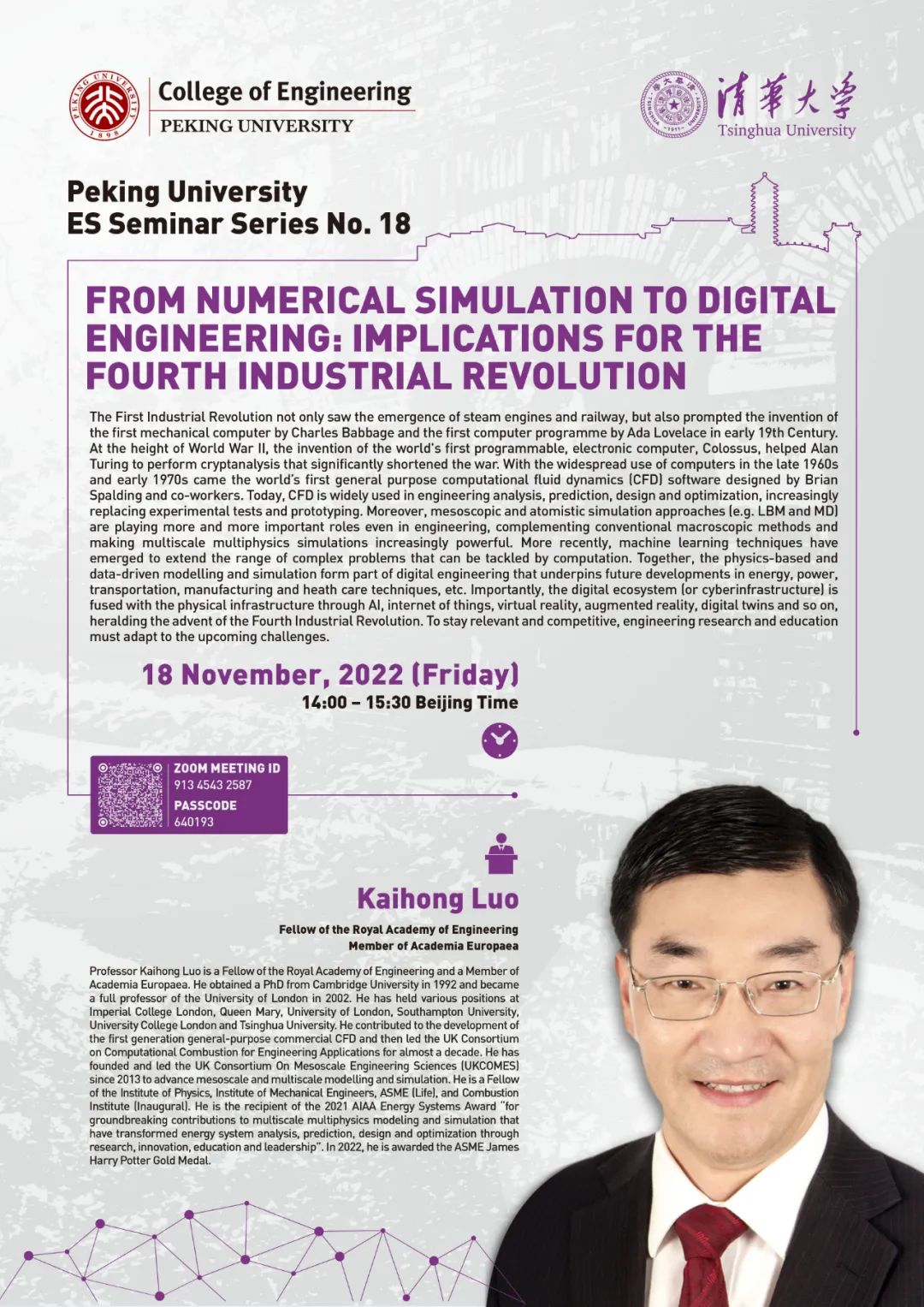Speaker: Kaihong Luo, Fellow of the Royal Academy of Engineering, Member of Academia Europaea, Professor, Tsinghua University/University College London
Host: Prof. Chen Zheng, College of Engineering
Time: 14:00-15:30 pm, November 18, 2022, GMT+8
Venue: Zoom Meeting ID: 913 4543 2587 Passcode: 640193
Abstract:
The First Industrial Revolution not only saw the emergence of steam engines and railway, but also prompted the invention of the first mechanical computer by Charles Babbage and the first computer programme by Ada Lovelace in early 19th Century. At the height of World War II, the invention of the world's first programmable, electronic computer, Colossus, helped Alan Turing to perform cryptanalysis that significantly shortened the war. With the widespread use of computers in the late 1960s and early 1970s came the world’s first general purpose computational fluid dynamics (CFD) software designed by Brian Spalding and co-workers. Today, CFD is widely used in engineering analysis, prediction, design and optimization, increasingly replacing experimental tests and prototyping. Moreover, mesoscopic and atomistic simulation approaches (e.g. LBM and MD) are playing more and more important roles even in engineering, complementing conventional macroscopic methods and making multiscale multiphysics simulations increasingly powerful. More recently, machine learning techniques have emerged to extend the range of complex problems that can be tackled by computation. Together, the physics-based and data-driven modelling and simulation form part of digital engineering that underpins future developments in energy, power, transportation, manufacturing and heath care techniques, etc. Importantly, the digital ecosystem (or cyberinfrastructure) is fused with the physical infrastructure through AI, internet of things, virtual reality, augmented reality, digital twins and so on, heralding the advent of the Fourth Industrial Revolution. To stay relevant and competitive, engineering research and education must adapt to the upcoming challenges.
Biography:
Professor Kaihong Luo is a Fellow of the Royal Academy of Engineering and a Member of Academia Europaea. He obtained a PhD from Cambridge University in 1992 and became a full professor of the University of London in 2002. He has held various positions at Imperial College London, Queen Mary, University of London, Southampton University, University College London and Tsinghua University. He contributed to the development of the first generation general-purpose commercial CFD and then led the UK Consortium on Computational Combustion for Engineering Applications for almost a decade. He has founded and led the UK Consortium On Mesoscale Engineering Sciences (UKCOMES) since 2013 to advance mesoscale and multiscale modelling and simulation. He is a Fellow of the Institute of Physics, Institute of Mechanical Engineers, ASME (Life), and Combustion Institute (Inaugural). He is the recipient of the 2021 AIAA Energy Systems Award “for groundbreaking contributions to multiscale multiphysics modeling and simulation that have transformed energy system analysis, prediction, design and optimization through research, innovation, education and leadership”. In 2022, he is awarded the ASME James Harry Potter Gold Medal.
Source: College of Engineering
